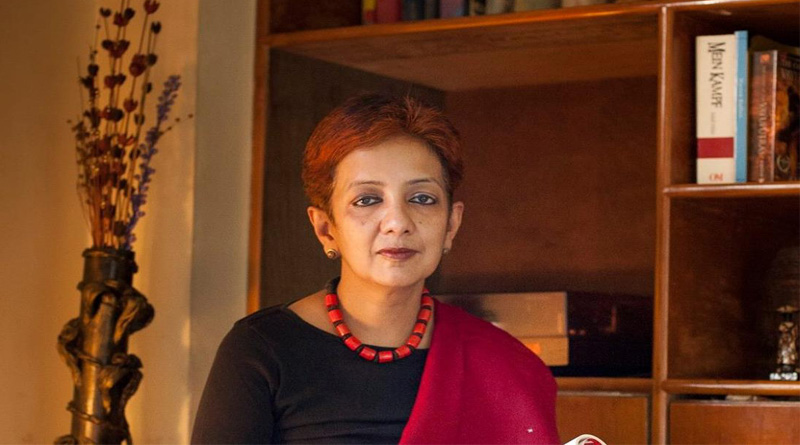NE Has Massive Potential For Entrepreneurship Development: Dr. Sriparna Baruah
What are the issues that afflict the entrepreneurship ecosystem in NE? Is there any solution to this? What should be the approach of the entrepreneurs and the society? How can we develop a conducive environment for entrepreneurship in this region? Dr. Sriparna Baruah, Head, Centre For Industrial Extension, Indian Institute of Entrepreneurship shared her ideas on various issues related to entrepreneurship in NE In a conversation with Rhiddhis Chakravorty, Founder & Editor of Resource Mantra.
Resource Mantra: How do you see the startup ecosystem in NE in general as of now?
Sriparna Baruah: Entrepreneurial ecosystem in NE is at a very interesting stage right now. Primarily I think people have become aware. Significant startups have started to come up from this region. Three states- Manipur, Assam and Sikkim have taken a lead in this regard. In Sikkim they have taken it to a very different level with incubation and other forms of support. Government officials have also taken it very seriously. A lot of successful startups have come up in the state and in terms of the number of startups and in terms of the population, it is very significant. In Assam, the initiatives like Startup Assam- The Nest have played a very significant role. The culture has developed with people becoming aware. In Manipur, the government has taken very good steps with good policies. Of course other states like Meghalaya have also come up with good policies as far as startups are concerned. But in Manipur their own angel network has come up. That is phenomenal. Another interesting aspect in Manipur is the startups there are pulling each other. Some of them voluntarily mentored other startups and it has worked really good.
RM: What are the main issues afflicting the entrepreneurs in NE and how can those be overcome?
SB: In NE, we see different types of people in the startup ecosystem in NE if we look very systematically. There is a section of people who are well informed and experienced. For those people only the platform is enough. They just need exposure and a platform to pitch. There is another section of people who have good ideas but they do not have experience. These are the people who would require a lot of handholding in terms of some orientation to entrepreneurship. They will need help in developing proper business model before they go to actually pitch. They will also need good communication skills because pitching is also about being a good communicator. So they need handholding in these areas. There is another segment. These people have some idea but they need a lot of support even for idea validation. But their desire to start a business is definitely strong in them. For them, possibly some long duration programmes and more handholding is required. They need more mentoring support. So I would like to say that there are three brackets of people who are coming forward to launch their startups. Each of these groups would require different types of handholding and support. If concerted initiatives are taken to target these groups, in a short time we can have more and more successful startups.
If you look at the number of startup events happening in the NE region in last 4-5 years is quite large. But how many startups actually get funds? The number is negligible. When investors look into a startup as a probable investment, what they look for is a proof of concept and some sort of scalability. But in case of our startups, the problem is the startup culture has not been here and the people do not have funds even for proof of concept. That’s when we realised that to facilitate the ecosystem we need some sort of a grant to support serious startups. The NEC has come up to support this idea and we had a very successful initiative and in 2020 we had 30 startups that got five lakhs of grant.
RM: As far as attitude on the part of the startup founders are concerned, do you think there is any major area that the budding entrepreneurs in this region need to seriously work on?
SB: Yes of course. Again I would say it depends on the type of people. People with exposure have the right attitude. People who do not have the exposure, often lack the attitude. They do not even understand. They are just eager to join the bandwagon because they may have heard about the availability of funds. So, without understanding they fall in love with their own ideas. It is seen especially among the people who are just out of engineering colleges etc. They are not ready. In premier institutions there are incubation centres. They involve people who are already successful and who can be looked upon as role models. But in most of the other institutions it is not there. Even the faculty members are not exposed to those ideas. There is the vacuum in the ecosystem here. Attitude is often built up by the right grooming that a person gets. So I think this is a missing link.
RM: We have talked about the disadvantages in NE as far as startup ecosystem is concerned. But is there any advantage that they can capitalise upon?
SB: Yes. I think there are a lot of opportunities in NE. The government is focusing on the cluster approach in entire India and especially in the NE. here we have the clusters in the handloom, handicraft and agri sector. There is a lot of opportunity for bringing in technology here and becoming aggregators for these clusters. Instead of looking pan India the startups have a lot of opportunities in focusing on the answers to their own localities and their own resources which are being mobilised. It can be a big value chain- right from the cluster to local startups trying to bring in technology and solve local problems at the grassroots where government initiatives are being taken. That way, I think opportunities are also there besides the normal opportunities. Especially now that the pandemic has become a boon for the edutech sector, here what can happen is every state in NE has an advantage because of regional language. That advantage can be taken by people and no competition will be there.
RM: What are the key sectors that entrepreneurs, especially startup founders can look into as far as NE is concerned.
SB: The resource bases are there. Handloom, handicraft are there. Bringing technology to those sectors. Food and agriculture is another sector. Though there is a slump in tourism at this point of time, I think there is always a scope for community tourism etc. so tourism is definitely there. Waste management can be another important sector. Health, media and entertainment, services in general, IT ITES, edutech are some of the most basic sectors that an entrepreneur can look into.
RM: As a society, how can we create a conducive environment for entrepreneurship.
SB: Entrepreneurship is the only answer now because there is not enough jobs. A lot of people are losing jobs. So entrepreneurship is the only answer. You cannot change the mindset of the parents so easily. But colleges and universities can do a lot. A lot of incubators are coming up in institutions. These incubators should also be tailor made to meet the needs of the students instead of just looking at how incubators work in IITs and IIMs. Because the same model will not work everywhere. Simply connecting to big mentors somewhere does not help. It has to be local mentors and local solutions. Also if a society has to change, the attitude of the teachers to entrepreneurship plays a very important role. Some networking at the college level should be done where experts can come and provide guidance to the students. It needs to be effective in this way and not just remain an activity for the NAAC.
RM: How can IIE help the entrepreneurs?
SB: IIE is a national institute. It can function as the nodal agency for training of trainers and incubators. One major advantage IIE has is it has been working with all the value chain right from the clusters. So the startups that want to ideate can come and discuss about the clusters. We can facilitate knowledge in this regard.






